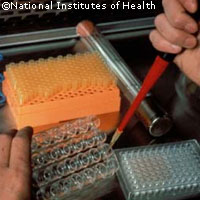Biotechnology integral part of EU economy, finds report
Biotechnology is already making a significant contribution to the European economy and the achievement of key EU policies, a new report from the European Commission's Joint Research Centre shows. Biotechnology is considered to be a key technology in supporting the EU's strategies on competitiveness and growth, job creation and sustainable development. However, until now, there has been a lack of data on where and how biotechnology products and processes are being used. The new report, 'Consequences, Opportunities and Challenges of Modern Biotechnology for Europe', represents the first comprehensive evaluation of the contribution that biotechnology is making to major EU policy goals. The document has already been used by the European Commission to inform its mid-term review of the Biotechnology Strategy, which it published earlier this month. Overall the report found that 'modern biotechnology products and processes are an integral part of the EU economy, particularly in manufacturing, including pharmaceuticals, agro-food and health care'. Examples of its application include enzymes in detergents, recombinant insulin, the use of genetic markers in livestock breeding, and genetically modified crops. 'Modern biotechnology is an existing, important industry already,' commented Roland Schenkel, Director General of the JRC, at the launch of the report. The authors estimate that modern biotechnology accounts for up to 1.69% of the EU economy, comparable to other major sectors such as agriculture (1.79%) or chemicals (1.95%). Furthermore, biotechnology was found to boost the competitiveness of EU companies, while the high level of training needed to work with biotechnology applications is leading to the creation of 'better jobs'. On the environmental front, modern biotechnology often increases the efficiency of production processes, helping to cut the use of energy and resources. 'The energy savings offered by these applications and the potential to replace fossil fuels by renewable sources (bioethanol) address challenges such as global warming and security of energy supply and provide an opportunity to break the link between economic growth and pressure on the environment,' the report reads. The report focuses on three main fields: medicine and healthcare; primary production and agro-food; and industrial processes, energy and the environment. Biotechnology is already widely used in the healthcare sector, for example in monoclonal antibodies for cancer treatments, recombinant hepatitis B vaccines and in diagnostic tests which detect biomarkers associated with heart attacks. In addition to this, biotechnological techniques are widely used in research into new medicines and diagnostic techniques. When biotechnology in the food sector is mentioned, most people immediately think of GMOs (genetically modified organisms), yet the report shows that these are just a small part of the story. In fact the sector uses biotechnology in many ways, including feed additive production (such as the amino acid lysine), food diagnostics (detection of salmonella and BSE - bovine spongiform encephalopathy) and enzymes for food production. Industrial applications of biotechnology include the use of enzymes to de-size cotton fabrics, enzyme-supported pulp bleaching in paper production and bioethanol production. However, while biotechnology is boosting Europe's competitiveness in all these areas, there is stiff competition from other parts of the world, particularly in the cases of biopharmaceuticals, bioethanol, biotechnology-based polymers and GM crops. 'In particular, the USA seems to embark on new developments much quicker and with strong policy support,' states the report. 'China and other Asian countries are also strongly increasing their involvement.' Looking to the future, Dr Schenkel commented that biotechnology needed continued political support focused on supporting biotechnology research and promoting knowledge transfer and market development. 'The EU is often not at the forefront of making practical use of research results,' he warned. 'We have to increase our efforts to keep our competitive edge.' He also noted that more data was needed to monitor the development of the technology and help researchers and policy makers anticipate emerging issues as early as possible.



